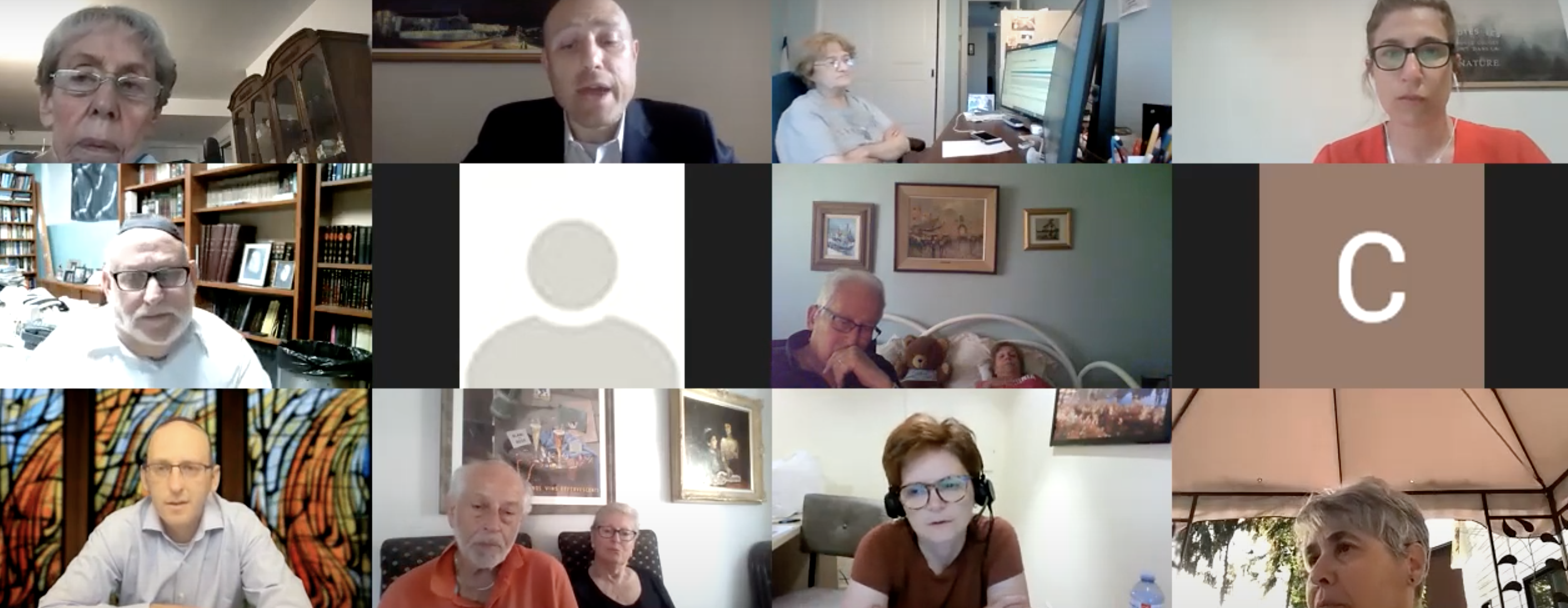After 14 months of drastically reduced operation, Montreal synagogues are reassessing how they serve congregants and the wider Jewish community as they prepare for a return to normalcy.
The unprecedented near-absence of in-person gatherings was confirmation of how essential being together is to Jewish life, three rabbis taking part in a virtual discussion May 27 agreed.
Looking ahead to what the end of the pandemic will mean were Rabbi Reuben Poupko of Congregation Beth Israel Beth Aaron in Côte St. Luc, Rabbi Adam Scheier of Congregation Shaar Hashomayim in Westmount, and Rabbi Mark Fishman of Congregation Beth Tikvah in Dollard des Ormeaux.
Their synagogues, all modern Orthodox, have created new ways of engagement that probably will continue post-pandemic, such as online (pre-recorded) services, Zoom meetings, and virtual educational and cultural programs that are reaching more of their congregants than likely would have attended live, as well as many others.
“People had nothing to do in lockdown, so they were more than happy to listen to a rabbi talk,” Rabbi Poupko joked. More seriously, he said, “How we are going to unify our congregation again is going to be a huge challenge.”
The rabbis said there is more interest among congregants in charitable activities, such as outreach to isolated members or, beyond the congregation, preparing meals for shelters.
The demographic that was hardest to attract pre-pandemic and even more so since are young people in their late teens and early 20s, the rabbis concurred. This group has not been in synagogue, and has missed two years of trips to Israel and programs such as March of the Living. Finding ways of being relevant to them must be a top priority, they said.
Places of worship in Montreal have been subject to a roller-coaster of rules since March 2020, with maximum capacity anywhere from zero to 10 to 25 to 50 to 250 people at different times. There was confusion over whether the number meant per building or separate room.
A nightly curfew imposed in January was dropped last week.
Today, places of worship in the red zone can admit up to 25, socially distanced, per building not room. On June 7 that is expected to increase to 100 as Montreal and Laval are downgraded to the orange alert level.
Once the pandemic is over, Rabbi Scheier is confident the Shaar will quickly return to where it was. He noted that the 1,300-member congregation, since its founding in 1846, has seen wars, epidemics and other crises and always “the next day shown up at shul (because) it meets a core need of humanity… We need community in a tangible sense. Nothing replaces the interpersonal.”
Although they miss shul, Rabbi Poupko expects his congregation’s return will be gradual because nervousness about close physical contact will not disappear so fast.
The “devastating” psychological effect of COVID will have to be addressed, he said.
“There were enormous stresses, on young and old… To say there was carnage among our elderly, in the homes, is not overstating it. There were 200 extra deaths in our community. People were not able to say goodbye. There were no shivahs, causing profound pain.”
Rabbi Fishman said the pandemic has forced synagogues to ask themselves, “What are we in the business of? What is our product?” Will we be transformed? Will we incorporate what we have learned?”
The rabbis acknowledged that filling the pews was difficult well before the pandemic as their congregational stalwarts age and depart.
Rabi Poupko said the children of the builders of Beth Israel Beth Aaron are less keen on synagogue attendance, while high enrolment in Jewish day schools is leading parents to feel their children are getting enough Judaism during the week.
Before the pandemic, Rabbi Scheier said 10 to 15 per cent of members were coming to Shabbat services regularly. “We lost some of those people to COVID, and we haven’t had time to replace them. We have not attracted anyone new.”
Rabbi Fishman said Beth Tikvah has learned that, while prayer remains the heart of what it is about, more attention should be paid to providing other means of participation, such as learning and doing good.
“We knew some of our congregants are coming only for the High Holidays… We now see a desire for connection through the many doors we offer,” he said.
